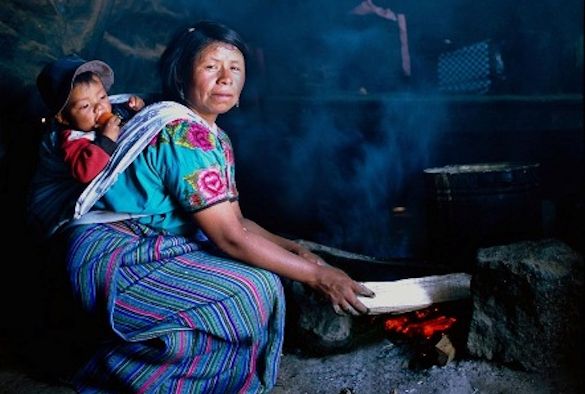
University of Liverpool research into household air pollution has been identified as “one of the top 20 most impressive examples of UK research contributing to global development” by the UK-Collaborative on Development Sciences (UK-CDS).
UK-CDS selected the research from nearly 7,000 submissions as one of the best examples of how UK research is improving the lives of people around the world. The research was submitted as an Impact case study to the Research Exercise Framework (REF) in 2014.
Improving lives
Study into preventing the adverse health impacts of Household Air Pollution by the University’s Department of Public Health and Policy, as part of the WHO Collaborating Centre for Policy Research on Social Determinants of Health, has directly contributed to international initiatives and policies that will improve the lives and health of almost three billion people.
Household air pollution (HAP) is a major health risk for people living in the world’s poorest communities, resulting in an estimated four million premature deaths every year and making up 4.3% of the Global Burden of Disease in 2010.
Evidence
Research led by Professor Nigel Bruce, alongside Dr Daniel Pope, Dr Debbi Stanistreet, Dr Mukesh Dherani and Dr Elisa Puzzolo, provided key evidence for quantifying the global burden of HAP.
It also reviewed the efficacy of several important preventive strategies and tools, and investigated the impact of pollution-reducing technologies on maternal and child health.
The research group led in the development of the latest WHO Air Quality Guidelines that highlighted the need to switch from traditional solid fuels to clean fuels to achieve sufficient reductions in HAP to reduce the global burden of associated disease.
To this end the group are actively investigating approaches to maximising adoption and sustained use of clean fuels at scale in low and middle income countries.
More details of their research can be found on https://www.liv.ac.uk/psychology-health-and-society/research/energy-air-pollution-health/.